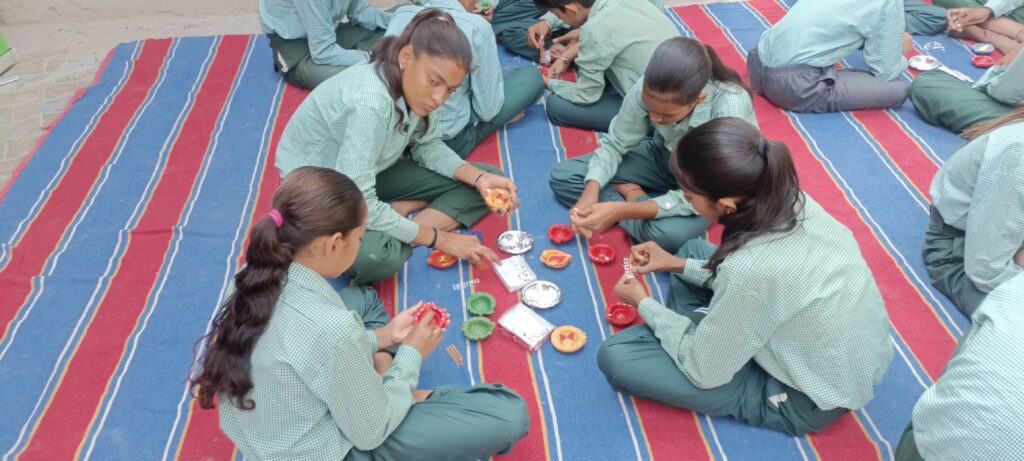Skill development plays a crucial role in the lives of disadvantaged youth. These young individuals face numerous challenges that hinder their access to opportunities for skill development. However, by providing them with the necessary skills, we can empower them to overcome their disadvantages and achieve success in life.
Disadvantaged youth often come from low-income backgrounds, where they lack the resources and support necessary to develop their skills. They may not have access to quality education or job opportunities, which further perpetuates the cycle of poverty. Skill development can break this cycle by equipping these youth with the tools they need to succeed.

Understanding the Struggles Faced by Disadvantaged Youth
Disadvantaged youth face a multitude of challenges that hinder their ability to succeed in life. Poverty is one of the main disadvantages they face, as it limits their access to basic necessities and opportunities for growth. Without financial stability, these youth may struggle to afford education or training programs that can help them develop their skills.
Lack of access to education is another significant challenge faced by disadvantaged youth. Many come from communities with underfunded schools or inadequate resources, making it difficult for them to receive a quality education. This lack of education can severely impact their ability to develop essential skills needed for future success.
Furthermore, limited job opportunities pose a significant obstacle for disadvantaged youth. They may live in areas with high unemployment rates or lack the necessary connections to secure employment. Without access to job opportunities, these youth are unable to apply and further develop the skills they possess.
The Role of Skill Development in Overcoming Disadvantages
Skill development plays a crucial role in helping disadvantaged youth overcome their disadvantages. By providing them with opportunities to develop their skills, we can empower them to break free from the cycle of poverty and achieve success in life.
Technical skills are essential for disadvantaged youth as they provide them with the knowledge and expertise needed for specific industries or trades. By acquiring technical skills, these youth can increase their employability and access higher-paying jobs. Technical skills can range from computer programming to carpentry, depending on the interests and aptitudes of the individual.
Soft skills are equally important for disadvantaged youth. These skills include communication, teamwork, problem-solving, and adaptability. Soft skills are transferable across various industries and are highly valued by employers. By developing these skills, disadvantaged youth can enhance their employability and succeed in a wide range of careers.
Life skills are also crucial for disadvantaged youth as they equip them with the necessary tools to navigate through life successfully. Life skills include financial literacy, time management, decision-making, and goal-setting. By developing these skills, disadvantaged youth can make informed choices, manage their finances effectively, and set themselves up for long-term success.
The Benefits of Skill Development for Disadvantaged Youth
Skill development offers numerous benefits for disadvantaged youth. Firstly, it increases their employability by equipping them with the necessary skills to secure jobs in various industries. With increased employability comes higher wages, which can significantly improve their quality of life and help break the cycle of poverty.
Furthermore, skill development provides disadvantaged youth with a sense of empowerment and self-confidence. By acquiring new skills and knowledge, they gain a sense of accomplishment and belief in their abilities. This newfound confidence can motivate them to pursue further education or training opportunities and strive for greater success.
Skill development also enhances the overall well-being of disadvantaged youth. By providing them with the tools to succeed in life, they are more likely to experience improved mental health and overall life satisfaction. They are better equipped to handle challenges and setbacks, leading to a higher quality of life.
The Impact of Skill Development on Academic Performance
Skill development has a significant impact on academic performance among disadvantaged youth. By developing their skills, these young individuals become more motivated and engaged in their education. They see the relevance of their studies and how it can contribute to their future success.
Developing skills also enhances critical thinking and problem-solving abilities, which are essential for academic success. These skills enable disadvantaged youth to approach challenges with a solution-oriented mindset, leading to improved academic performance.
Moreover, skill development can improve overall academic success by providing disadvantaged youth with a sense of purpose and direction. By developing their skills, they gain a clearer understanding of their interests and strengths, allowing them to make informed decisions about their educational and career paths.
The Role of Mentors in Skill Development for Disadvantaged Youth

Mentors play a crucial role in skill development for disadvantaged youth. They provide guidance, support, and encouragement to help these young individuals succeed. Mentors can serve as role models and provide valuable insights into various industries or trades.
Mentors can also help disadvantaged youth navigate through challenges and setbacks. They offer advice and share personal experiences that can inspire and motivate these young individuals to persevere in their skill development journey.
Furthermore, mentors can provide networking opportunities for disadvantaged youth. By connecting them with professionals in their desired fields, mentors can open doors to job opportunities and further skill development programs. Mentors serve as advocates for these youth, helping them overcome barriers and achieve their goals.
Overcoming Barriers to Skill Development for Disadvantaged Youth
There are various barriers that can prevent disadvantaged youth from accessing opportunities for skill development. Financial constraints are one of the main barriers faced by these young individuals. Many cannot afford the costs associated with education or training programs. To overcome this barrier, it is essential to provide financial support through scholarships or grants.
Another barrier is the lack of flexible schedules. Disadvantaged youth may have other responsibilities such as work or family obligations that make it difficult for them to attend skill development programs. Offering flexible schedules or online learning options can help overcome this barrier and ensure that these youth have access to skill development opportunities.
Transportation is another significant barrier for disadvantaged youth. Many may not have access to reliable transportation to attend skill development programs. Providing transportation services or locating skill development programs in easily accessible areas can help overcome this barrier and ensure equal access for all.
The Importance of Continued Skill Development for Long-Term Success
Continued skill development is essential for long-term success among disadvantaged youth. The job market is constantly evolving, and new skills are in demand. By continuing to develop their skills, these young individuals can adapt to changing job markets and remain competitive.
Furthermore, ongoing skill development allows disadvantaged youth to advance in their careers. By acquiring new skills and knowledge, they can take on more challenging roles and increase their earning potential. Continued skill development also opens doors to leadership positions and greater opportunities for growth.
Moreover, continued skill development helps disadvantaged youth stay motivated and engaged in their work. By continuously learning and developing their skills, they can avoid stagnation and maintain a sense of purpose and fulfillment in their careers.
The Power of Skill Development in Breaking the Cycle of Poverty
Skill development has the power to break the cycle of poverty among disadvantaged youth. By equipping them with the necessary skills, we can empower them to secure higher-paying jobs and improve their quality of life.
Developing skills leads to increased employability, which in turn leads to higher wages. With higher wages, disadvantaged youth can afford better housing, healthcare, and education for themselves and their families. This improved quality of life can help break the cycle of poverty and create a better future for future generations.
Moreover, skill development provides disadvantaged youth with the tools they need to become self-sufficient. By acquiring the necessary skills, they can rely on their own abilities to secure employment and provide for themselves and their families. This independence is crucial in breaking the cycle of poverty and creating a sustainable future.
Investing in Skill Development for a Better Future for Disadvantaged Youth
Investing in skill development for disadvantaged youth is crucial for creating a better future for these young individuals. By providing them with opportunities to develop their skills, we can empower them to overcome their disadvantages and achieve success in life.
Skill development offers numerous benefits, including increased employability, higher wages, improved academic performance, and enhanced overall well-being. It also plays a significant role in breaking the cycle of poverty by equipping disadvantaged youth with the tools they need to succeed.
To ensure equal access to skill development opportunities, it is essential to address barriers such as financial constraints, lack of flexible schedules, and transportation issues. By providing financial support, offering flexible schedules, and providing transportation services, we can ensure that all disadvantaged youth have access to skill development programs.
Continued investment in programs and initiatives that support skill development for disadvantaged youth is crucial. By investing in these young individuals, we are investing in a better future for them and for society as a whole. Skill development has the power to transform lives and break the cycle of poverty, creating a more equitable and prosperous society.


